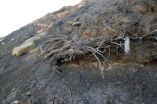New research finds delaying surgical procedures increases infection risk and health care costs
Study in the Journal of the American College of Surgeons makes the case for performing more procedures on day of admission
2010-12-16
(Press-News.org) CHICAGO (December 15, 2010) – Delaying elective surgical procedures after a patient has been admitted to the hospital significantly increases the risk of infectious complications and raises hospital costs, according to the results of a new study in the December issue of the Journal of the American College of Surgeons.
The occurrence of infection following surgical procedures continues to be a major source of morbidity and expense despite extensive prevention efforts that have been implemented through educational programs, clinical guidelines, and hospital-based policies. The authors of the study queried a nationwide sample of 163,006 patients, 40 years of age and older, from 2003 to 2007. They evaluated patients who developed postoperative complications following one of three high-volume elective surgical procedures: 87,318 coronary artery bypass graft (CABG) procedures, 46,728 colon resections, and 28,960 lung resections.
The infectious complications evaluated included pneumonia, urinary tract infections, postoperative sepsis and surgical site infections. Researchers found that for each type of procedure, infection rates increased significantly from those performed on the day of admission to those performed one, two to five, and six to 10 days later. Total infection rates after CABG increased from 5.7 percent on the day of admission to 18.2 percent at six to 10 days. Similar increases were noted after colon resection (from 8.4 to 21.6 percent) and after lung resection (from 10.2 to 20.6 percent; p < 0.0001 for all trends). The delays significantly inflated total hospital costs. Mean cost significantly increased with delays for all procedures evaluated: CABG: $36,079 to $47,527; colon resections: $20,265 to $29,887; and lung resections: $26,323 to $30,571.
"Multiple factors can contribute to postsurgical complications, including age and coexisting health issues," said lead study author Todd R. Vogel, MD, MPH, FACS, assistant professor of surgery at the University of Medicine & Dentistry of New Jersey, Robert Wood Johnson Medical School, New Brunswick. "This analysis, however, confirms a direct correlation between delaying procedures and negative patient outcomes. As pay-for-performance models become increasingly prevalent, it will be imperative for hospitals to consider policies aimed at preventing delays and thereby reducing infection rates."
Factors associated with in-hospital procedure delays included advanced age (80 years and older), female gender, minority status, and existing health issues including congestive heart failure, chronic pulmonary disease, and renal failure. Postoperative complications most associated with delay in CABG and colon resection were urinary tract infections and pneumonia, while delayed lung resections increased rates of sepsis and pneumonia. Mortality was significantly greater when CABG procedures and lung resections were postponed more than five days.
The study analyzed data collected from the Healthcare Cost and Utilization Project (HCUP) Nationwide Inpatient Sample (NIS), the largest publicly available all-payer inpatient care database in the U.S. and was sponsored by the Agency for Healthcare Research and Quality (AHRQ). The database includes all inpatient stay records from approximately 20 percent of U.S. community short-stay hospitals.
INFORMATION:
About the American College of Surgeons
The American College of Surgeons is a scientific and educational organization of surgeons that was founded in 1913 to raise the standards of surgical practice and to improve the care of the surgical patient. The College is dedicated to the ethical and competent practice of surgery. Its achievements have significantly influenced the course of scientific surgery in America and have established it as an important advocate for all surgical patients. The College has more than 77,000 members and is the largest organization of surgeons in the world. For more information, visit www.facs.org.
ELSE PRESS RELEASES FROM THIS DATE:
2010-12-16
University of Guelph researchers have finally figured out why female squirrels are so darn promiscuous. Turns out it has nothing to do with genes and everything to do with how many males are knocking at their door.
"Their behaviour is overwhelmingly influenced by opportunity," said graduate student Eryn McFarlane, who, along with integrative biology professor Andrew McAdam and a team of researchers from across Canada, solved a mystery that has baffled biologists for years.
Their findings appear in the Royal Society Journal Biology Letters.
Female squirrels are less ...
2010-12-16
An effort to increase biofuel production has led scientists to discover genes in yeast that improve their tolerance to ethanol, allowing them to produce more ethanol from the same amount of nutrients. This study, published in the December 2010 issue of Genetics (http://www.genetics.org), shows how genetically altered yeast cells survive higher ethanol concentrations, addressing a bottleneck in the production of ethanol from cellulosic material (nonfood plant sources) in quantities that could make it economically competitive with fossil fuels.
"Our hope is that this ...
2010-12-16
SAN FRANCISCO -- The northernmost mummified forest ever found in Canada is revealing how plants struggled to endure a long-ago global cooling.
Researchers believe the trees -- buried by a landslide and exquisitely preserved 2 to 8 million years ago -- will help them predict how today's Arctic will respond to global warming.
They also suspect that many more mummified forests could emerge across North America as Arctic ice continues to melt. As the wood is exposed and begins to rot, it could release significant amounts of methane and carbon dioxide into the atmosphere ...
2010-12-16
OAK BROOK, Ill. – Dec. 15, 2010 – Researchers at the Mayo Clinic in Rochester, Minn., have developed a new skills assessment tool for colonoscopy trainees. A report outlining the development and validation of the Mayo Colonoscopy Skills Assessment Tool (MCSAT), designed for the assessment of cognitive and motor skills during colonoscopy training, appears in the December issue of GIE: Gastrointestinal Endoscopy, the monthly peer-reviewed scientific journal of the American Society for Gastrointestinal Endoscopy (ASGE).
Ensuring that gastroenterology fellows and surgery ...
2010-12-16
By determining what goes missing in human cells when the gene that is most commonly mutated in pancreatic cancer gets turned on, Johns Hopkins scientists have discovered a potential strategy for therapy.
The production of a particular cluster of genetic snippets known as microRNAs is dramatically reduced in human pancreatic tumor cells compared to healthy tissue, the researchers report in a study published Dec. 15 in Genes and Development. When the team restored this tiny regulator, called miR-143/145, back to normal levels in human pancreatic cancer cells, those cells ...
2010-12-16
In a proof of principal study in mice, scientists at Johns Hopkins and the Virginia Commonwealth University (VCU) have shown that a set of genetic instructions encased in a nanoparticle can be used as an "ignition switch" to rev up gene activity that aids cancer detection and treatment.
The switch, called a promoter, is a set of chemical letters that interacts with DNA to turn on gene activity. In this case, the scientists used a promoter called PEG-Prom, cloned by VCU researcher Paul Fisher, Ph.D. PEG-Prom is activated only when inside cancer cells, not in normal ones.
"With ...
2010-12-16
Athens, Ga. – University of Georgia researchers have developed a technique that can diagnose a common type of pneumonia within minutes, potentially replacing existing tests that can take several days for results.
The researchers, whose findings are detailed online in the journal PLoS ONE, detected Mycoplasma pneumoniae, which causes atypical or "walking pneumonia," in true clinical samples with over 97 percent accuracy using a recently-developed nanotechnology-based platform.
"If you can make a positive identification from a 10-minute test, then appropriate antibiotics ...
2010-12-16
People who watch funny videos on the internet at work aren't necessarily wasting time. They may be taking advantage of the latest psychological science—putting themselves in a good mood so they can think more creatively.
"Generally, positive mood has been found to enhance creative problem solving and flexible yet careful thinking," says Ruby Nadler, a graduate student at the University of Western Ontario. She and colleagues Rahel Rabi and John Paul Minda carried out a new study published in Psychological Science, a journal of the Association for Psychological Science. ...
2010-12-16
HOUSTON - The recently identified TRIM24 protein plays an active role in pushing normal breast cells into rapid cell proliferation and, potentially, into breast cancer.
Reporting in the journal Nature, a team led by researchers at The University of Texas MD Anderson Cancer Center found that TRIM24 (tripartite motif-containing 24) pushes estrogen-responsive genes toward active expression. This expression, in turn, sets the stage for malignant transformation of breast cells. TRIM24 functions by reading a specific code, or signature, present at estrogen-regulated genes and ...
2010-12-16
Rising concentrations of zinc in a waterway on Colorado's Western Slope may be the result of climate change that is affecting the timing of annual snowmelt, says a new study led by the University of Colorado at Boulder.
The study focused on the Snake River watershed just west of the Continental Divide near Keystone, Colo., where CU-Boulder researchers have observed a four-fold increase in dissolved zinc over the last 30 years during the lowest water flow months, said Caitlin Crouch. Crouch, a master's degree student who led the study, said the high levels of zinc affect ...
LAST 30 PRESS RELEASES:
[Press-News.org] New research finds delaying surgical procedures increases infection risk and health care costs
Study in the Journal of the American College of Surgeons makes the case for performing more procedures on day of admission



